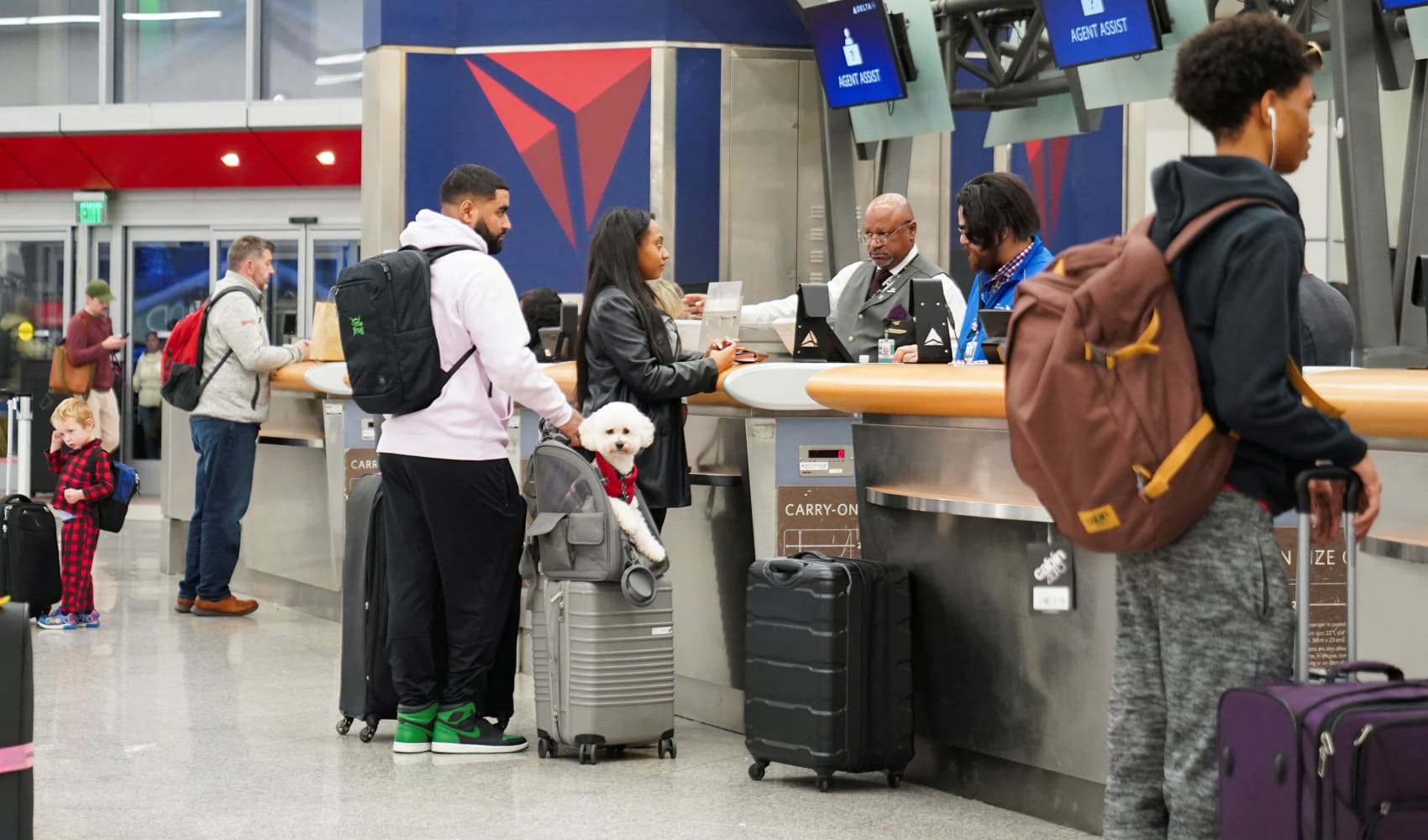
- The CDC still recommends a 14-day quarantine "as the best way to reduce the risk of spreading Covid-19."
- However, the quarantine can end after 10 days if the person has not developed any symptoms and after just seven days if the asymptomatic person also tests negative for the virus, the CDC's Dr. Henry Walke said.
- Public health specialists have been awaiting the change with "delighted anticipation," said Dr. Bill Schaffner, an epidemiologist at Vanderbilt University.
The Centers for Disease Control and Prevention announced on Wednesday shortened alternatives to its recommended quarantine for people who were exposed to someone with Covid-19.
The CDC previously recommended that anyone who was exposed to the coronavirus quarantine for 14 days. Dr. Henry Walke, the agency's Covid incident manager, said the CDC still recommends a 14-day quarantine "as the best way to reduce the risk of spreading Covid-19." However, he said the agency has identified "two acceptable alternatives."
The quarantine can end after 10 days if the person has not developed any symptoms and can end after just seven days if the asymptomatic person also tests negative for the virus, Walke said. He added that the sample for the negative test should be collected within 48 hours of the final day of quarantine.
"We continue to refine our guidance to prevent transmission and protect Americans," Walke said. "Reducing the length of quarantine may make it easier for people to follow critical public health action by reducing the economic hardship associated with a longer period, especially if they cannot work during that time."
Walke added that local health officials can adjust the agency's recommendations to fit the situations of their jurisdictions. He said regardless of the length of quarantine, people should monitor their own symptoms for a full 14 days after an exposure.
Dr. John Brooks, chief medical officer for CDC's Covid-response, said ending a quarantine after 10 days without a negative test leads to about 1% risk of spreading the virus to others, based on modeling by the CDC and outside researchers. After a seven-day quarantine with a negative test, there's about a 5% chance of spreading the virus, he added.
Money Report
The recommended quarantines apply to those deemed "close contacts" of Covid patients. The CDC defines a close contact as "someone who was within 6 feet of an infected person for a cumulative total of 15 minutes or more over a 24-hour period starting from 2 days before illness onset" or positive test result.
The rationale for announcing the shortened quarantine options was based at least partly in garnering more compliance among the public, Walke said. He added that the agency has heard reports from local public health departments of people exiting quarantine early after an exposure.
"In a situation where cases are rising, that means that the number of contacts are rising, and the number of people who require quarantine is rising. That's a lot of burden, not just on the people who have to quarantine, but also on public health," he said. "We believe that if we can reduce the burden a little bit, accepting that it comes at a small cost, we make greater compliance overall with people."
Public health specialists have been awaiting the change with "delighted anticipation," said Dr. Bill Schaffner, an epidemiologist at Vanderbilt University. The Wall Street Journal reported last week that the CDC was considering such a change.
The original 14-day quarantine period was based on what scientists believed to be the lengthy coronavirus incubation period, during which symptoms are not yet present and it's difficult to detect the virus. Schaffner pointed out that the 14-day recommendation "was written before testing was widely available" and researchers have since learned more about the virus.
"Several of us have thought for some time, that now that testing is available you could introduce that into the scheme of how to evaluate people who are in quarantine," he said, adding that this will help potentially exposed people return to work more quickly.
"This is good for public health and good for the economy," he said, "and good for people's mental health."
Saskia Popescu, an epidemiologist and biodefense professor at George Mason University, who reviewed the CDC's new guidance, said Wednesday it shows that the agency is "opting to look at this from a risk/benefit perspective."
"Ultimately, what this approach means is that that we're recognizing the significant challenges and burden that a 14 day quarantine entails," she said in an email to CNBC. "There's a better chance for success in having people comply with this."
'Postpone holiday travel'
In addition to the adjusted quarantine recommendations, Walke also announced that the CDC is recommending against travel for the winter holidays.
"CDC recommends that the best way to protect yourself and others is to postpone travel and stay home," Walke said. "If you do decide to travel, CDC recommends that travelers consider getting tested one to three days before travel and then again, three to five days after travel."
Testing should be in conjunction with other risk-reduction protocols like a quarantine period, he added. Dr. Cindy Friedman, chief of the CDC's travelers health branch, added that the nation saw a lot of travelers over the week of Thanksgiving, which could exacerbate the outbreak.
"Even if only a small percentage of those travelers were asymptomatically infected, this can translate into hundreds of thousands of additional infections moving from one community to another," she said. "Cases are rising and the safest thing to do is to postpone holiday travel and stay home."






